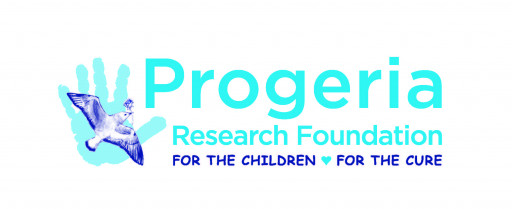PEABODY, Mass., March 15, 2023 (Newswire.com)
-
A newly developed progerin biomarker indicates long-term benefit of treatment in children with Progeria is greater than previously determined, according to a study in an advanced online publication in the journal Circulation today. The study, led by Progeria Research Foundation (PRF) co-founder and Medical Director Dr. Leslie Gordon, found that lower progerin levels in the blood samples reflected survival benefit, and a longer duration of time spent on lonafarnib (Zokinvy ) treatment was associated with an even greater increase in life expectancy than previously understood.
) treatment was associated with an even greater increase in life expectancy than previously understood.
Progerin is the toxic protein that causes Progeria, an ultra-rare, fatal pediatric rapid-aging disease. Progerin is found in all people but is generated at much higher levels in children and young adults with Progeria. With this new biomarker blood test, researchers can now measure the progerin level in any person at any given time—helping scientists understand how treatments are affecting clinical trial participants after only a few months on treatment and at multiple points along each clinical trial. To better understand progerin's connection to adult heart disease and the general aging process, additional studies will be necessary.
The progerin biomarker can optimize the clinical trial process by providing early information about the effectiveness of progerin-targeted treatments as a lead-in to clinical measures that can demonstrate changes later in the course of therapy. This may provide the opportunity to detect treatment benefits as early as four months after starting treatment, or stop a treatment that may not be beneficial and avoid unnecessary treatment side effects.
The study used data from the PRF International Patient Registry and blood samples from the PRF Cell and Tissue Bank, which contains samples donated from the clinical trials co-coordinated by PRF and Boston Children's Hospital (BCH). In patients with Progeria, lonafarnib (Zokinvy) lowered progerin levels by about 35 - 62 percent for as long as the children stayed on the drug. The longer a child stayed on the drug, the greater the survival benefit from being on therapy. Life expectancy for patients on treatment for 10 years was estimated to increase by almost 5 years.
PRF's next step is to submit the biomarker data to the FDA for their critical evaluation as a validated test that can be used for measuring treatment effects and for new drug approvals.
"Measuring this new progerin biomarker from a blood sample means we can move faster towards finding better treatments and the cure for children with Progeria," said Dr. Leslie Gordon, The Progeria Research Foundation's co-founder and Medical Director. "Future treatment strategies that we are developing for Progeria, including small molecules, RNA therapeutics and DNA base editing, will all benefit greatly from this discovery."
"We're thrilled that this study data estimates more than a 35% increase in lifespan for those who've taken lonafarnib for 10 years," said Audrey Gordon, Executive Director of The Progeria Research Foundation. "Every day, we at PRF are working toward our mission of finding new treatments and the cure. Today's announcement marks another major step closer to that goal."
"After conducting Progeria-related clinical trials at Boston Children's Hospital, where we've enrolled children from over 20 countries, having a biomarker is an exciting milestone," said Dr. Monica Kleinman, Principal Investigator for the Progeria clinical trials at Boston Children's Hospital. "We hope that following progerin levels gives us an earlier indication as to whether a trial treatment is working for children with this ultra-rare disease."
About The Progeria Research Foundation
The Progeria Research Foundation (PRF) was established in 1999 by the family of Sam Berns, a child with Progeria. Within four years of its founding, the PRF Genetics Consortium discovered the Progeria gene, a collaboration led by Dr. Francis Collins, White House Science Advisor and former Director of the National Institutes of Health (NIH). As of 2007, PRF has funded and co-coordinated all Progeria clinical trials conducted at Boston Children's Hospital and supports scientists who conduct Progeria research worldwide. PRF's International Patient Registry includes over 370 children with Progeria in 70 countries.
PRF is the only nonprofit organization solely dedicated to finding treatments and the cure for Progeria and its aging-related conditions, including heart disease. The organization fills a void, putting these children and Progeria at the forefront of scientific efforts. For more information and to support PRF's mission, please visit www.progeriaresearch.org.
Contact Information:Eleanor Maillie
Communications Manager, PRF
emaillie@progeriaresearch.org
978.879.9244
Original Source: New Progerin Biomarker Predicts Survival Benefits of Treatment in Children With Progeria
The post New Progerin Biomarker Predicts Survival Benefits of Treatment in Children With Progeria first appeared on Social Gov.
originally published at Business - Social Gov

